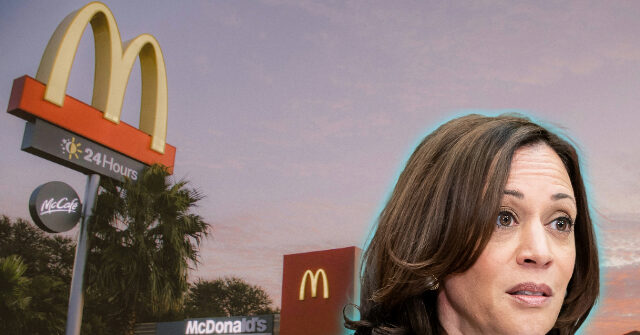In a recent episode of “Fox & Friends,” former President Donald Trump made headlines by accusing Vice President Kamala Harris of lying about her past employment at McDonald’s. Trump stated, “She lied,” responding to host Brian Kilmeade’s inquiry about whether he believed Harris had ever worked at the fast-food chain. Trump asserted that his team had conducted a thorough investigation into Harris’s claims and found no evidence to support her assertion that she worked at McDonald’s in Alameda, California, during the summer of 1983. He recalled his interactions with a long-serving manager at one of the local McDonald’s outlets, who reportedly did not remember Harris ever working there.
The controversy centers around Harris’s assertion that she worked at McDonald’s to support her college education. Her campaign had initially claimed in an ad that she worked there to pay her way through college; however, this narrative was later amended to suggest she sought extra spending money while studying at Howard University, where her parents were both professors. The clarification raised questions about the motivations behind her previous statements and led to further scrutiny regarding the nature of her employment, given that the timeline of her alleged work at McDonald’s corresponded with a period when her familial situation would suggest she may not have needed such financial support.
While the specifics of Trump’s fact-checking efforts remain unclear, his comments were indicative of the heightened scrutiny that political figures face regarding their backgrounds and experiences. Trump emphasized that if he were found to have fabricated a similar claim, it would result in widespread media coverage, particularly in outlets like The New York Times, which he has often criticized. His emphasis on media bias and how it would react to his alleged misstatements illustrated his broader narrative of feeling unfairly attacked compared to other political figures.
Harris, on her part, has suggested that Trump is overly fixated on her supposed job at McDonald’s, a claim he has apparently made part of his campaign rhetoric. Despite the back-and-forth, Harris’s team has yet to release any corroborating evidence of her employment at McDonald’s, fueling continued doubt about the veracity of her statements. The lack of a clear response from her campaign, especially after the narrative changed regarding her financial motivations, has left the door open for further questions about her claims.
Adding an element of irony to the situation, Trump himself is known for his affinity for McDonald’s, enjoying a menu that includes two Big Mac burgers, two Filet-o-Fish sandwiches, and a chocolate milkshake. This affinity not only underscores the cultural connection to the fast-food chain but also highlights the potential absurdity of a political battle rooted in an employment history that should be inconsequential when weighed against the larger political discourse. Nevertheless, this episode exemplifies how trivial personal histories can morph into significant political talking points amid campaign narratives.
Overall, the exchange between Trump and Harris reflects the contentious nature of political discourse, where past experiences are scrutinized and wielded as weapons in broader electoral battles. As the campaign progresses, the dialogue surrounding Harris’s McDonald’s claims may continue to resonate with voters, framing their perceptions of her credibility while positioning Trump in relation to a favorite American institution that he unapologetically endorses. The intensity and format of this back-and-forth are poised to capture media attention, with implications for both candidates as they navigate the complex landscape of the 2024 presidential race.

